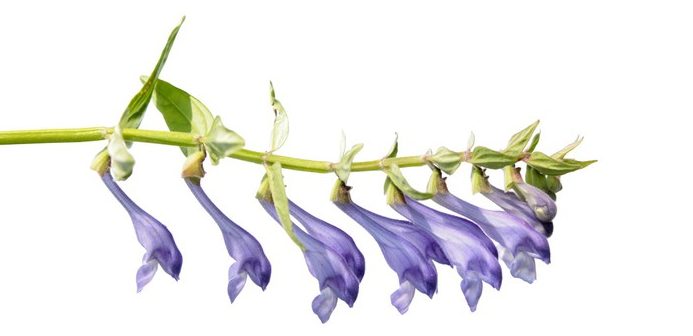A while back I was arguing with someone about which herbal flavonoid was best for helping clear toxic proteins from the brain. At the time my research pointed to EGCG (Green Tea extract) as my herb of choice. Since that argument a study came out showing that high levels of EGCG were potentially harmful to the liver so I stopped taking EGCG and stuck to just drinking Green Tea. Happily I came across an alternative herb yesterday that seems to hold equal if not better promise.
First if you are new to my posts or unfamiliar with the science behind what causes many forms of ataxia, I want to explain that a toxic protein that doesn't link properly with your body's natural waste removing cells is the major cause of many neurological disorders including many ataxias, plus Huntington's disease, Alzheimer's disease, Parkinson's disease, and Prion or polyQ disorders. All of these diseases share the common trait of a protein in the brain that "mis-folds" or forms oligomers. As it turns out there are many molecules that can attach to all these different "mis-folded" proteins and thereby allow the body to clean the proteins out of the brain before they become toxic. In addition by a happy coincidence, it often turns out that such molecules have other benefits far beyond clearing toxins from the brain such as anti-inflammatory and anti-oxidation properties (that means they help your body repair damage at the cellular level). I believe that natural herbs that are proven in the lab to help clean out mis-folded proteins MAY help people with ataxia. I also strongly believe in the work of Dr. Bredesen that when a patient combines several different supplements along with diet, exercise, and lifestyle changes the impact on neurodegenerative disorders can be almost miraculous. Here is a link to his seminal paper:
ncbi.nlm.nih.gov/pmc/articl...
But, that is not the point of today's post. Today's post is about the herb, Scutellariae Baicalensis. Way back in 2004 researchers in China found the herb could stop the bad protein involved with Parkinson's from forming toxic clumps. Here is that paper:
ncbi.nlm.nih.gov/pubmed/?te...
Since then there have been many papers studying this herb, and researchers came to realize it had broad therapeutic potential for other mis-folded protein disorders. Here is a paper outlining that theory.
ncbi.nlm.nih.gov/pubmed/244...
Best of all this herb has 2 safety studies done in humans:
sciencedirect.com/science/a...
ncbi.nlm.nih.gov/pubmed/273...
In those studies the researchers administered 200 to 2800 mg per day of baicalein to the patients and saw no toxicity in the liver or kidney.
However . . .
All the studies I found to date including those in animals and humans all seem to use the pure form of the molecule, baicalein. In fact the latest human study used a synthetic form they called beta-baicalein and not the natural root. That's the bad news. The good news is that this herb has been studied for a myriad of conditions from cancer to arthritis to heart disease and of course neurological disorders so there is plenty of research showing that the natural herb contains 20-25% baicalein which does in fact end up in the blood stream for some length of time. A brief side note - it appears to cause drowsiness is some folks.
I came to be interested in this herb because Simon of Science of Parkinson's wrote an article: scienceofparkinsons.com/201... so if you are looking for a more thorough discussion on the topic I suggest starting there.
As for me I think I will add this to my list of daily supplements perhaps starting with 2 pills of the Swanson supplement taken at night ( amazon.com/Swanson-Full-Spe... ) which will mean I am taking 800 mg of the natural root and that should equate to about 200 mg or so of baicalein, but as I have said time and again NEVER try something based on some internet comments without first discussing the topic with your doctor.


